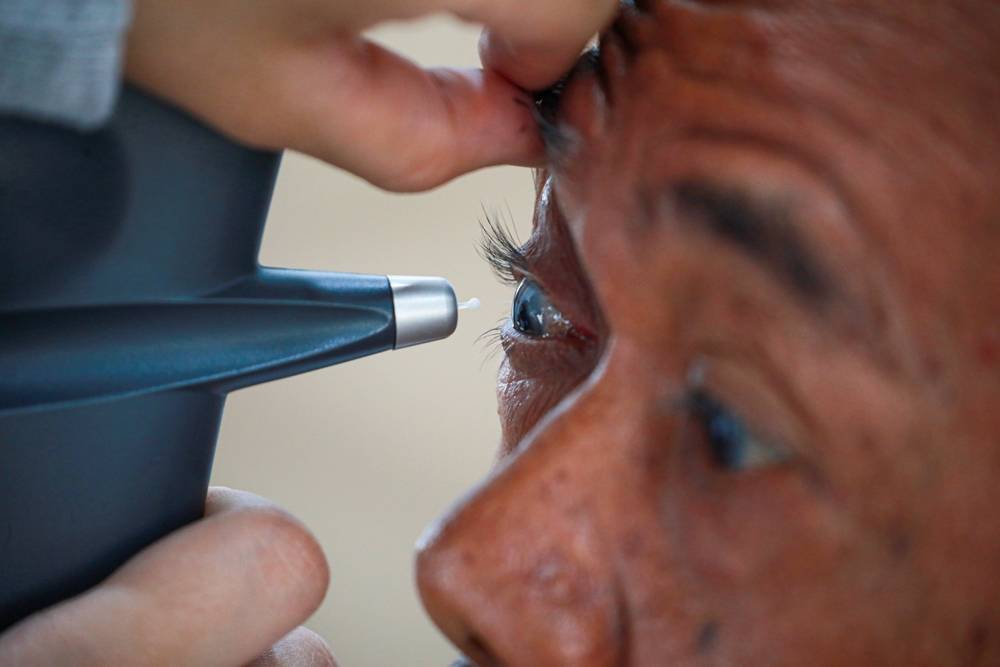Our eyes are our windows to the world, yet many of us take them for granted – until something goes wrong. From the blurry haze of cataracts to the silent progression of glaucoma, eye conditions can significantly impact your quality of life if left unchecked.
“Common eye conditions in Singapore include cataract, dry eyes, diabetic eye disease, age-related macular degeneration, glaucoma,” shared Dr Petrina Tan, Senior Consultant Ophthalmologist at Eagle Aesthetics & Surgery.
Many of these conditions can cause visual disturbances, a common one being night blindness.
“Some patient may find that their vision at night is worse as compared to the daytime when there is good lighting conditions.” shared Dr Tan. This could be due to disturbance of light entering the retinas due to cataracts and dry eyes, or the retinas not functioning properly due to vitamin A deficiency or congenital illnesses like retinitis pigmentosa or Usher’s syndrome.
Having a good and sharp vision is a blessing. To preserve your vision, it is important to go for regular eye check-ups, reduce screen time, and ensure your eyes get sufficient nutrients.
Visiting a trusted eye centre for comprehensive screenings can help detect early signs of conditions even before symptoms arise. Early intervention often leads to better outcomes, making routine exams a key part of long-term eye health.
In this article, we will outline some common eye conditions, and their symptoms.
Age-related Macular Degeneration (ARMD/AMD)
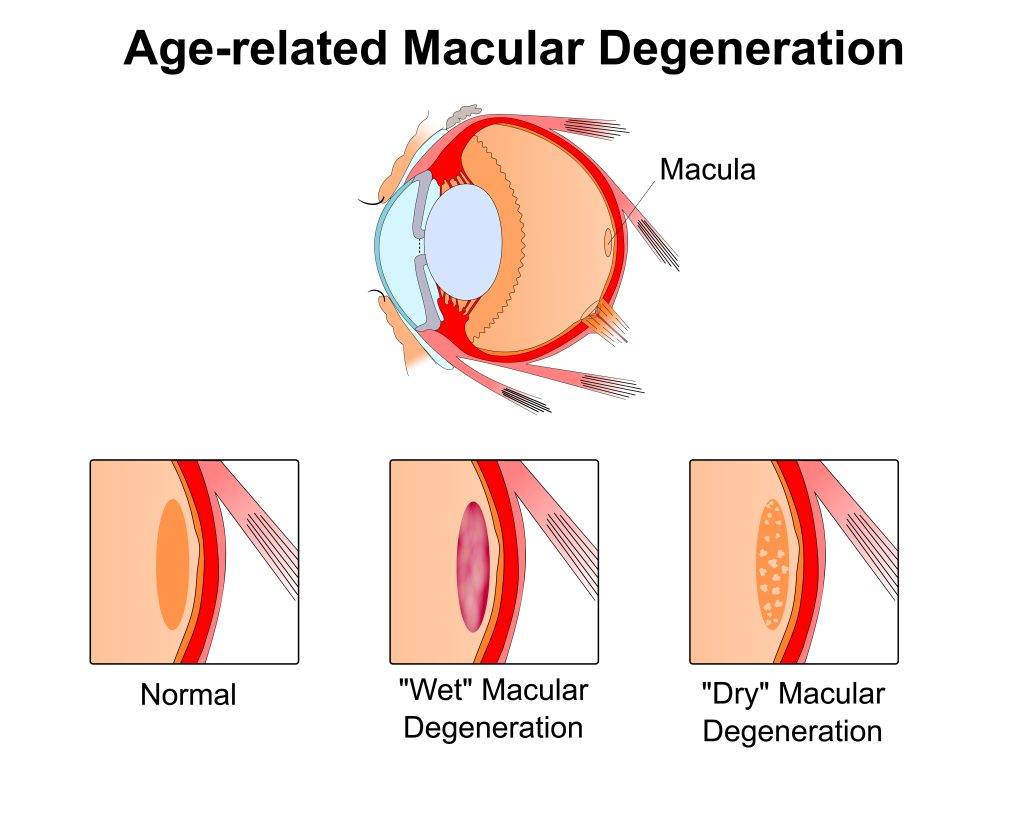
ARMD is a condition that typically affects adults over 50. It is a result of damage to the macula – the central part of the retina responsible for straight-ahead vision.
This damage, which happens through the ageing process, leads to blurred or distorted central vision. This can significantly impact daily activities like reading and driving.

There are two types of ARMD: dry and wet.
- Dry ARMD, the more common form, progresses slowly and occurs due to thinning of the macula and the buildup of drusen deposits, leading to gradual central vision loss.
- Wet ARMD is less common but more severe, characterized by abnormal blood vessel growth beneath the retina that leaks fluid or blood, causing rapid central vision loss and distortion.
Dry ARMD may be managed with lifestyle changes and nutritional supplements. Wet ARMD often requires treatments by an ophthalmologist to preserve vision.
Cataracts
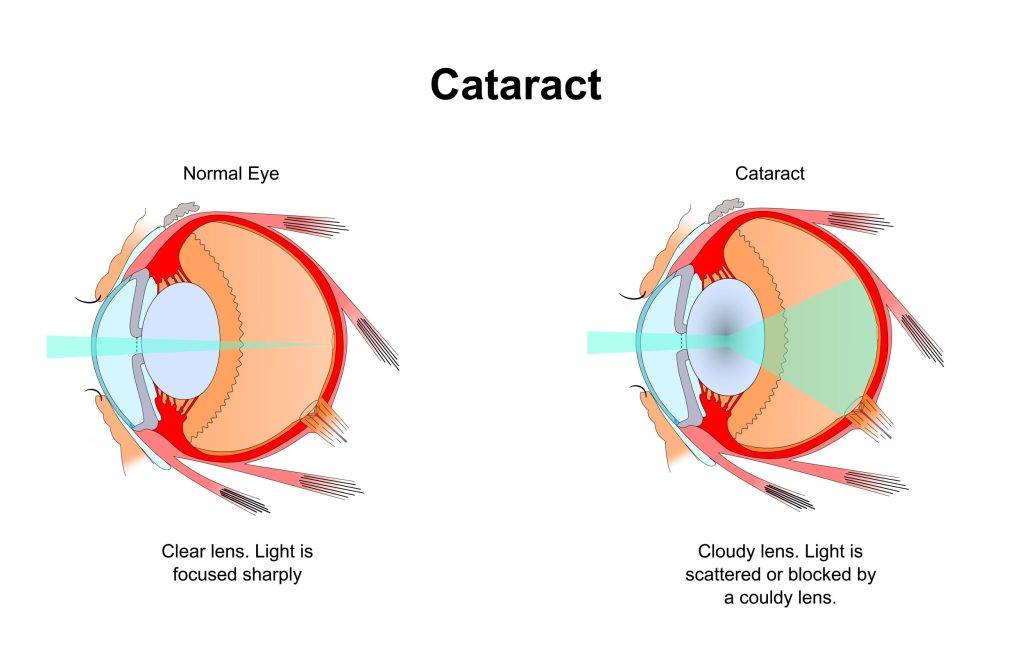
Cataracts occur when proteins and fibres in the lens of the eye break down, causing cloudy vision. Some described having cataracts as looking through foggy glasses. As the disease progresses, the cataracts cover more of the lens, compromising the vision further and even leading to vision loss.

While aging is the most common reason, cataracts can also be influenced by factors such as diabetes, family history, prior eye injury or surgery and taking certain long-term medication like steroids.
To prevent this condition, Dr Tan shares: “Eat foods rich in antioxidants, vitamins, and minerals, which may help prevent cataracts.” These may also come in the form of eye health supplements.
Dry Eye Disease
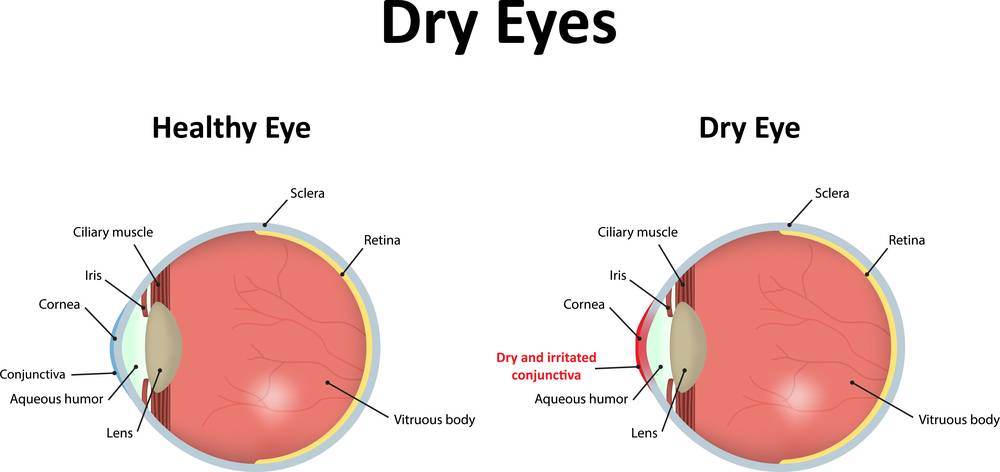
Tears are produced from the tear glands in the eyes to moisten, clean and protect the eyes from infections. Tears are made up of water, oil and mucus.
Dry eye syndrome happens when the tear glands do not produce sufficient tears, or the tears produced are abnormal. The eyes cannot be lubricated properly, leading to symptoms like stinging sensation and irritation to the eyes.
Prolonged screen use and environmental factors often exacerbate this condition.
Glaucoma
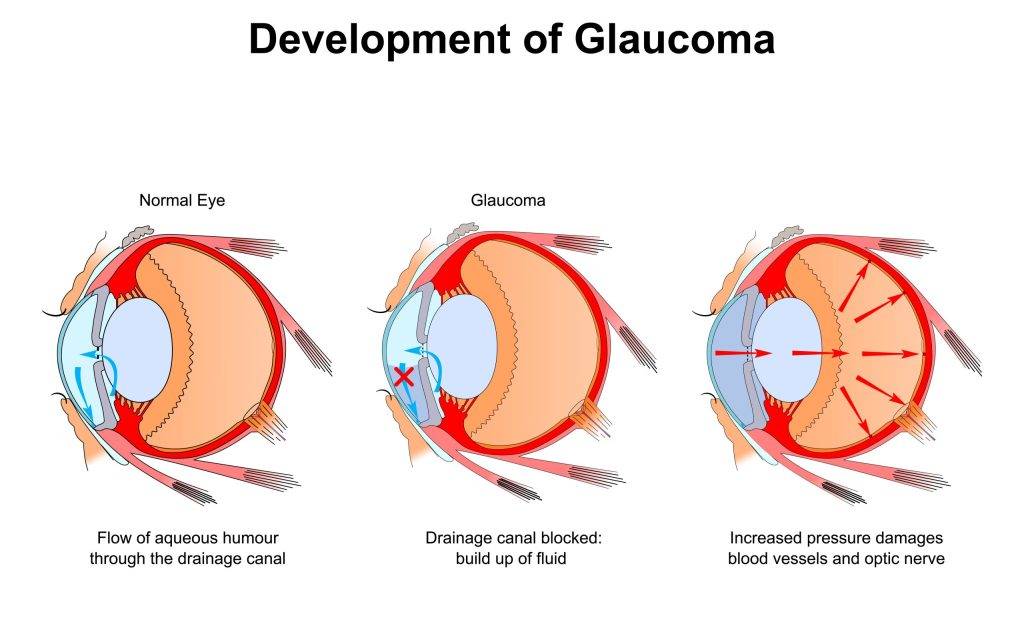
Glaucoma is a group of disease that causes damage to the nerves of the eyes called the optic nerves. The front section of the eye is filled with a transparent fluid known as aqueous humour. This fluid exits the eye through drainage channels called the anterior chamber angle (angle).
When the flow of aqueous humour is obstructed or slowed, pressure can build up inside the eye, causing damage to the optic nerve.

There are primarily two types of glaucoma:
- Open-angle glaucoma
- Closed-angle glaucoma (Angle-closure glaucoma)
In open-angle glaucoma, the gradual pressure buildup occurs silently. There is often no discomfort until significant damage has already been done to the optic nerve. This damage can result in blind spots and eventual vision loss.
Closed-angle glaucoma is less common, but a more serious type of glaucoma. It results from a sudden blockage of fluid drainage, leading to a sharp increase in eye pressure. It can be triggered by certain medications, such as dilating eye drops or corticosteroids.
While it is most common in the elderly, individuals with risk factors like high eye pressure or family history should remain vigilant about their eye health and go for eye exams to catch the conditions early.
Diabetic Retinopathy
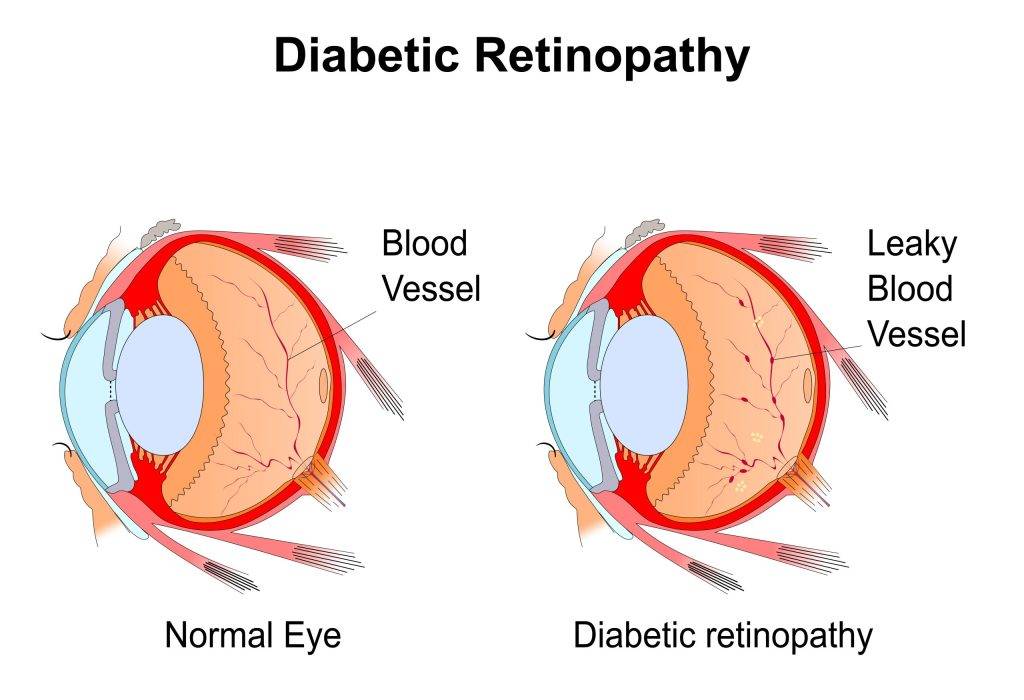
Diabetic retinopathy occurs due to high blood sugar levels over long periods of time. This excess sugar in the bloodstream damages the retina, the part of the eye responsible for detecting light and transmitting visual signals to the brain via the optic nerve.
Diabetes affects blood vessels throughout the body, including the delicate ones in the retina. High blood sugar can cause these vessels to narrow, weaken, or become blocked, disrupting normal blood flow.
As the disease progresses, the damaged vessels may leak fluid or blood into the vitreous fluid. There may be scarring at the back of the eye. In response, the body attempts to compensate by growing new blood vessels, but these new vessels are often fragile and prone to leakage or rupture, worsening the condition.
Anyone with diabetes are at risk of diabetic retinopathy, though individuals with poorly controlled or long-standing diabetes are at higher risk.
Key Takeaways
From the silent damage of glaucoma to the progressive blurring caused by cataracts, protecting your vision from these common eye conditions requires proactive care.
Maintain good eye health by starting with regular eye exams to catch issues early, especially if you are at risk due to age, family history, or underlying health conditions like diabetes. Another way to support eye health is through eye supplements, especially if your diet is deficient in some essential nutrients.
If you notice changes in your eyesight, such as blurry vision and eye discomfort, do not delay seeking medical advice. Early detection and treatment can prevent serious complications.

